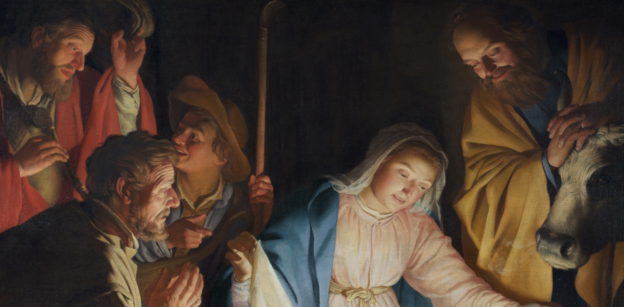Summary
We live in a time of uncertainty and distress. Great Powers posture and gesture, threatening conflict. A global pandemic grips the globe. Is God faithful to his promises to save and deliver his people?
Christmas reminds us that God does act to save and deliver his people, even when times seem desperate. While the initial context of Isaiah 7 was earthly struggles, the greater fulfilment in Christ reminds that God defeats far more than earthly opposition; he saves us from our sins. While those who deny God go on to judgement, everyone who trusts God will enjoy peace with him.
Our Passage Explained
Terror reigned in the hearts of Judah’s people. The Great Power of the time, Assyria, had waned but was now back on the rise. Judah’s northern neighbours, Israel and Syria, wanted Judah to join forces with them in beating back the Assyrians. They were willing to invade Judah to ensure its cooperation (vv.1-2).
King Ahaz, David’s descendant on his throne, worried that he would be overthrown. But God intended otherwise. God sent Isaiah, his prophet, to King Ahaz, representing the royal line of David. Together with his son, Shear-Jashub (meaning “A remnant shall return”), Isaiah went to encourage Ahaz to trust in God and not in the strength of his city defences.
Israel and Syria’s plans would not succeed; instead within 65 years they would be destroyed (vv.3-9). Ahaz must trust in God because “if you are not firm in faith, you will not be firm at all” (v.9).
Ahaz is more interested in courting favour with Assyria than with God (2 Kings 16), so God sent Isaiah to him again with another message. This time, God commanded Ahaz, weak of faith, to ask for a sign from God (vv.10-11). Ahaz hid behind false piety (Deut 6:16) to decline God’s offer, since he had already decided to trust Assyria over the Sovereign LORD (v.12).
While he was a member of David’s house and an inheritor of God’s promises made to David (2 Sam 7), his unbelief brought wariness to God (v.13). Despite that, God announces a sign, not so much for Ahaz’s benefit, but for the house of David.
The famous promise is that “Behold, the virgin shall conceive and bear a son, and shall call his name Immanuel” (v.14). There is an argument about whether this promise was only for the distant future, or a double fulfillment in Ahaz’s time and the distant future. In my view, it is most likely a double fulfillment announced here, with an event in history pointing forward to a greater reality (eg, Hosea 11:1).
Very shortly then a young woman who was a virgin at the time of the prophecy, perhaps a member of the Royal Family, will marry and conceive a child. Expressing her hope in God, she would call the child Immanuel, or “God [is] with us”. Before the child is old enough to eat the “milk and honey” of the Promised Land, Assyria will lay waste the lands of Israel and Syria (vv.15-16, which duly happened about two years later in 732BC).
This sign indicates God’s sovereign control over all events. Ahaz’s lack of faith in God is rebuked by the sign and its fulfillment, even as God’s acts bring an end to the situation which worries Ahaz.
But this sign does not mean happy days for unbelieving Ahaz! Instead, salvation will belong to a remnant who, as Isaiah’s son’s name proclaims, will return from judgement. For the rest though, devastation was coming (v.17-ch.8), from Assyria’s hand. Eventually this would be made complete by Babylon. Out of this devastation, a remnant will experience deliverance through judgement to return to the land.
To the believing remnant, who unlike Ahaz trust in God’s promises, the Messianic promises of Isaiah 9 belong. However bad the times to come, God’s anointed one who is spoken of in both human and divine language will come to deliver his people.
Our Passage Applied
Those messianic promises find their fulfillment in Christ. Not only that, but God’s virgin sign to the house of David finds its greater fulfillment in Jesus. Jesus, conceived by the Holy Spirit, was born of the virgin Mary, from the line of David. His name, “God saves”, indicated his role in saving from a far greater foe than earthly opposition; Jesus came to save us from our sins.
No wonder then that Matthew’s Gospel quotes Isaiah 7:14 and sees its fulfillment in Jesus (Matt. 1:23). Jesus is our Immanuel. He is, in the truest and greatest sense, God with us. Not just a boy with a name expressing hope in God’s faithfulness to his covenant promises, but a living, breathing image of the invisible God, dwelling with his people.
While judgement still awaits those who reject him, for we among the nations who put our trust in Jesus our Immanuel there is deliverance from the wrath to come. Because Jesus’ birth brings “Glory to God in the highest, and on earth peace among those with whom he is pleased! (Luke 2:14).

